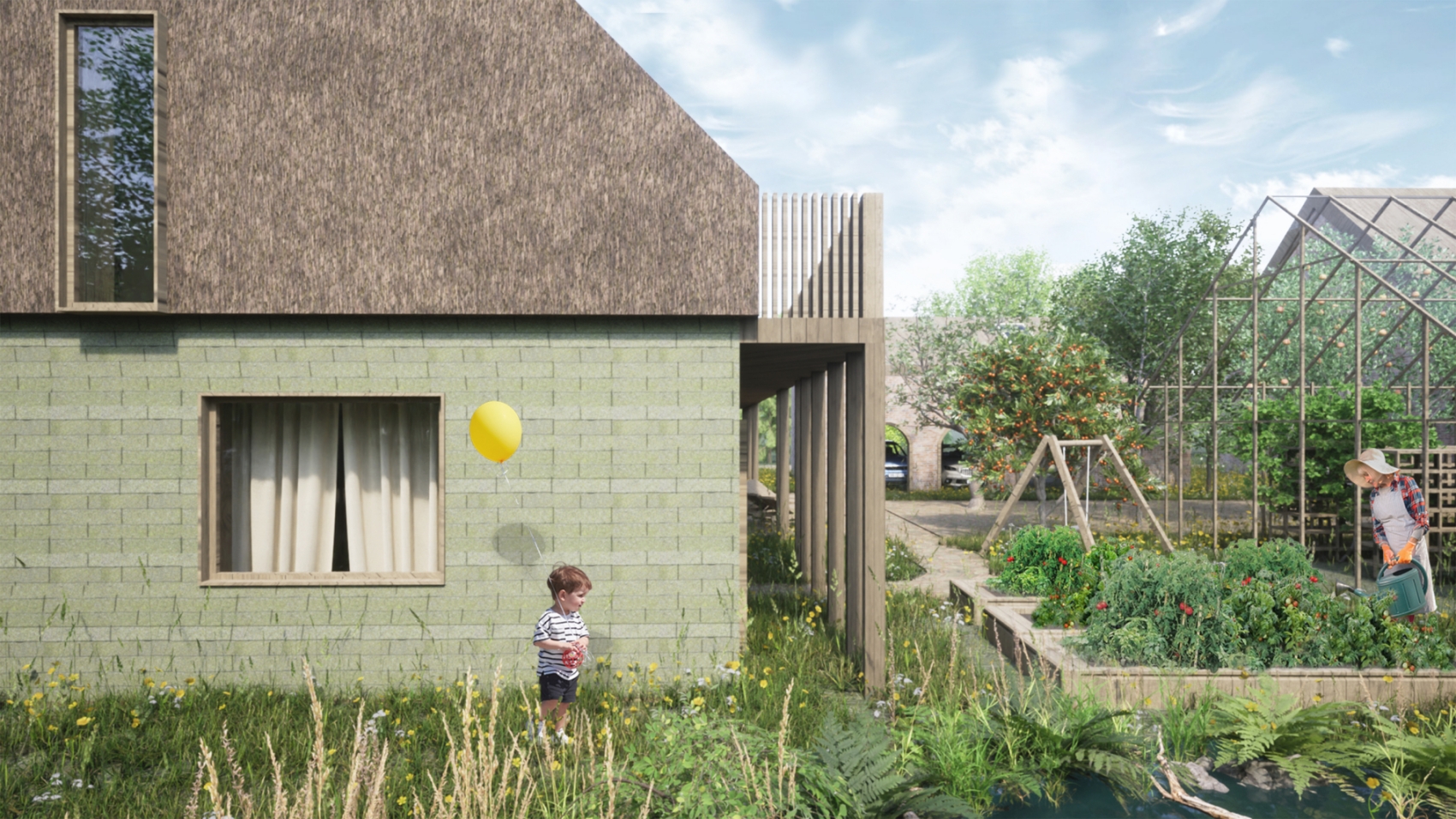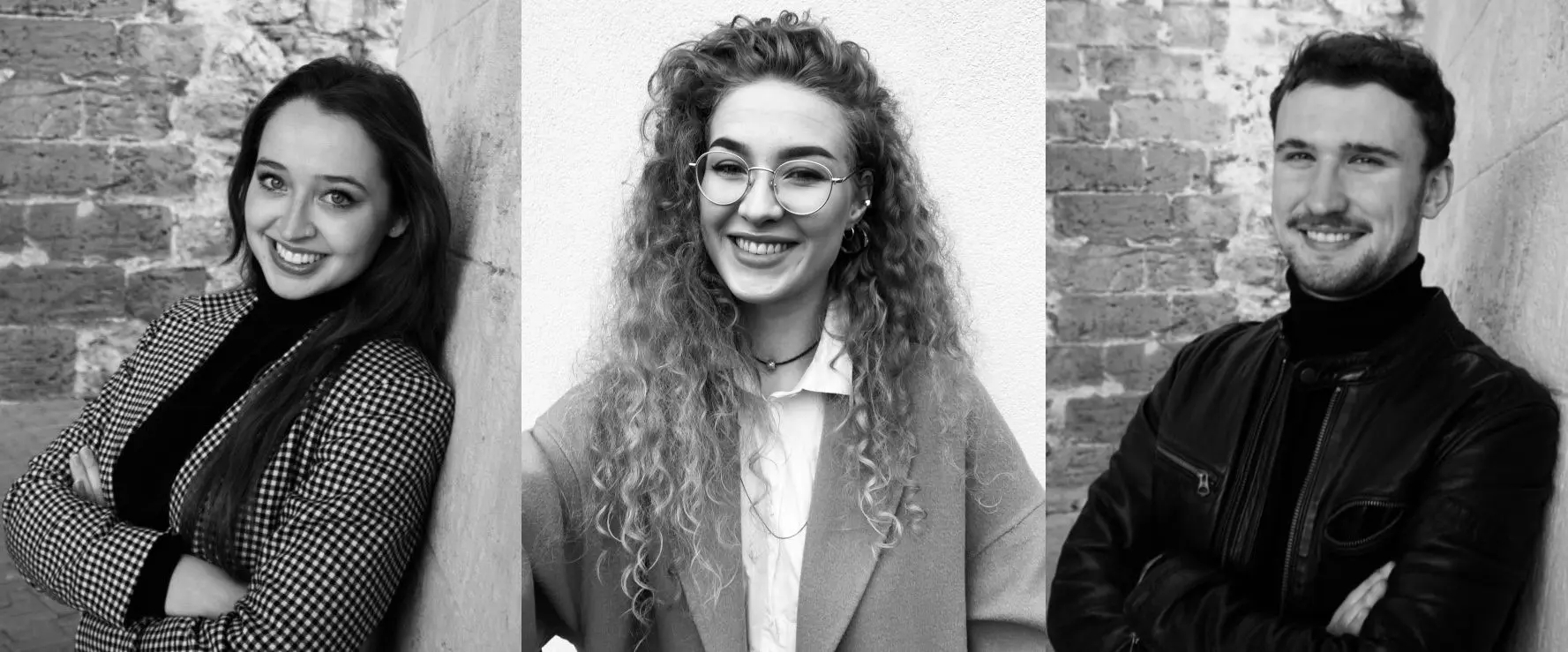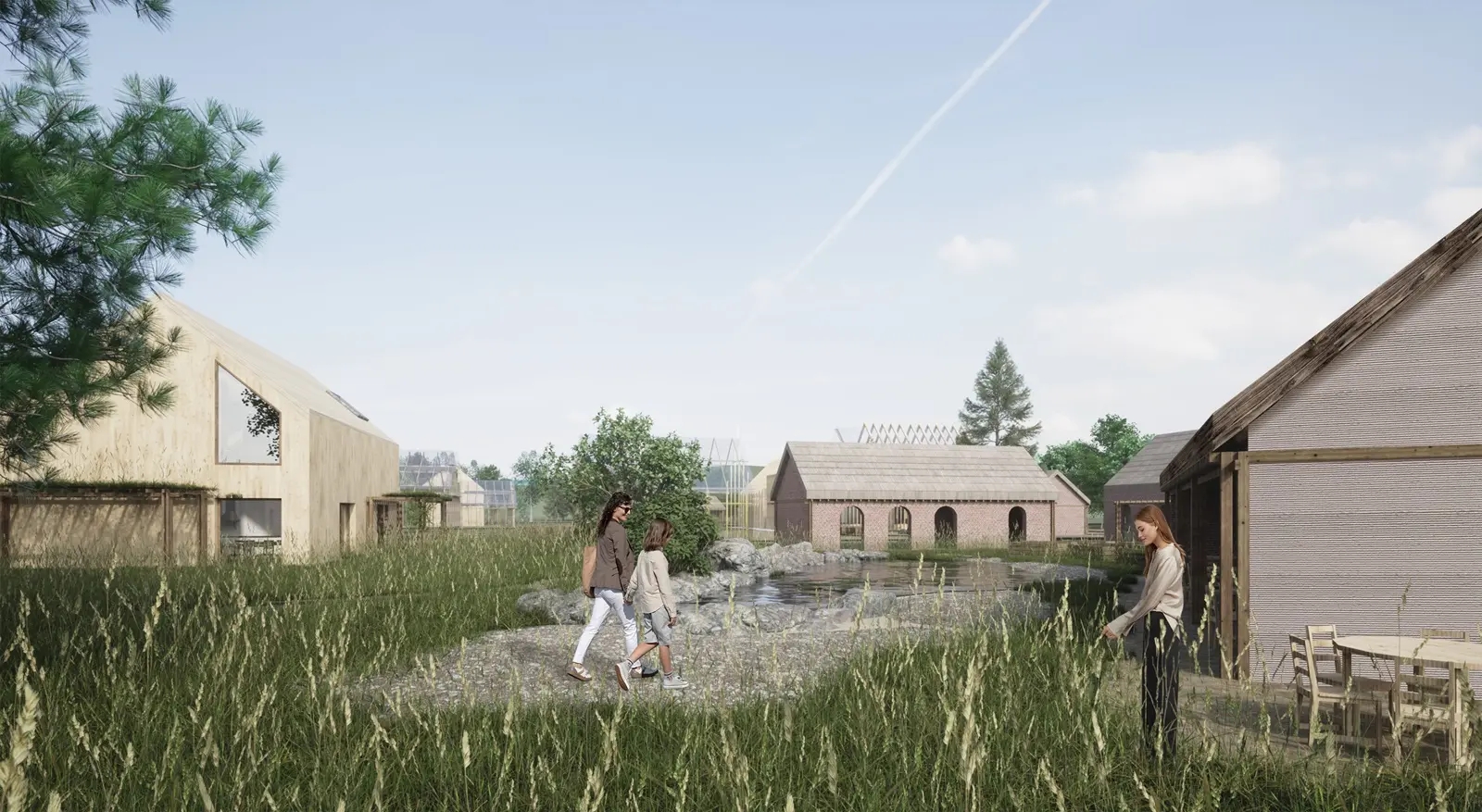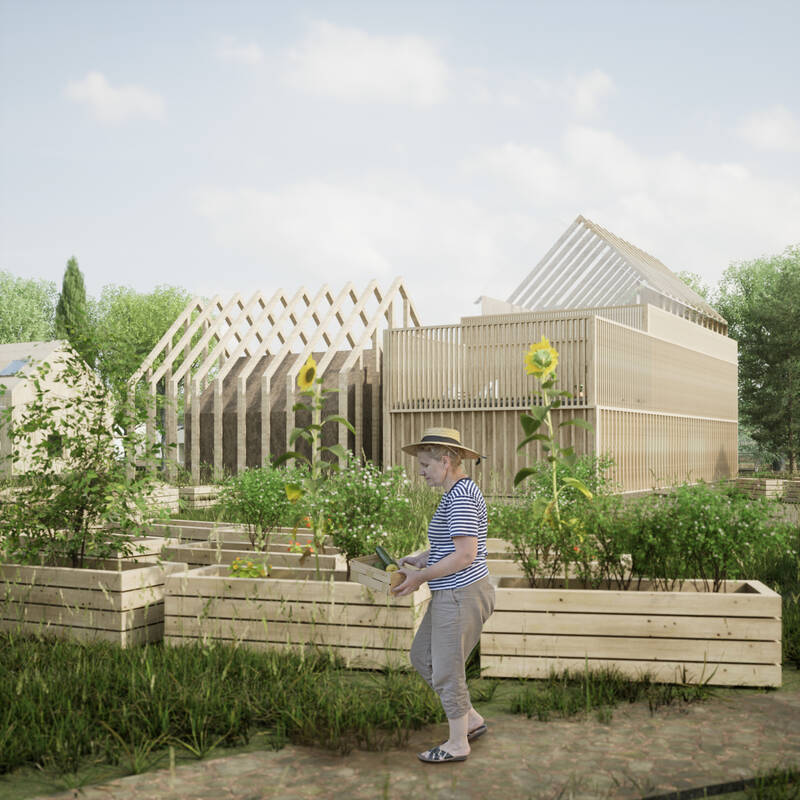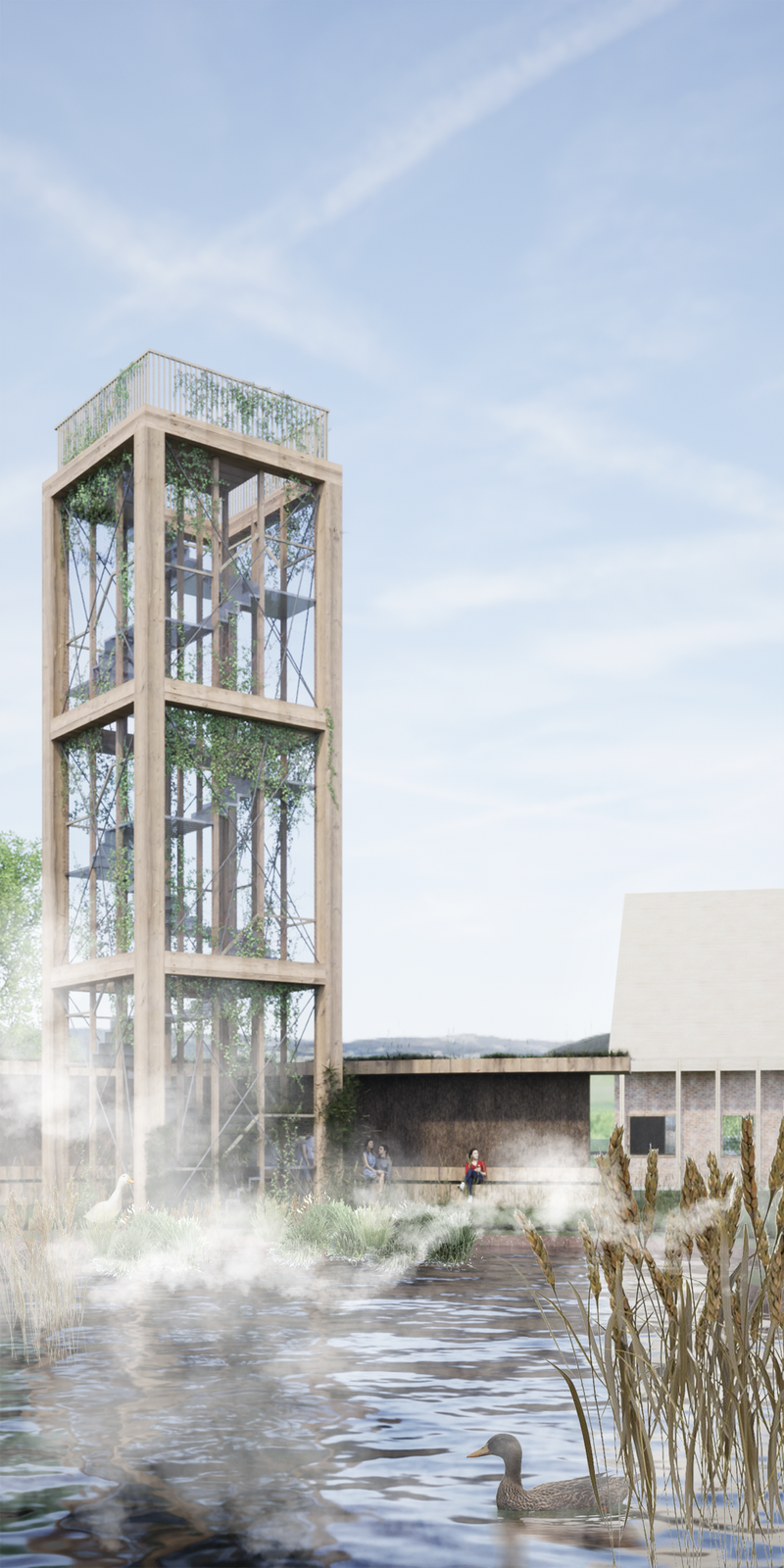It is self-sufficient, the housing estate of the future was designed by three students from the Faculty of Architecture at Wrocław University of Technology: Maja Stankowska, Klaudia Ryś and Mateusz Baranowski. Their concept won the international Intuiture2075 competition
The students’ project is an answer to the question: what might a self-sufficient housing estate look like in 2075? The competition ‘Architecture Design – Environmentally Friendly Dwelling Architecture’ was organised by the 361bit platform. Students from more than 30 universities in eleven countries around the world submitted entries. Participants were tasked with designing a 150-unit housing estate that could be operational in 2075
The competition scored solutions that adapt the development to the changing needs of users, promote neighbourhood integration and make clever use of modern technology
Students Maja Stankowska, Klaudia Ryś and Mateusz Baranowski from the Faculty of Architecture prepared the project under the supervision of dr inż. arch. Anna Miśniakiewicz
Our vision focused on presenting a forward-looking approach to sustainable architecture. The concept represents a ‘return to roots’ using traditional and local solutions in the creation of the estate. Our aim was to provide diverse, flexible, accessible and affordable spaces. We also decided to define the potential audience of the estate and identify their most important needs, such as a sense of security and privacy, education and inter-neighbourhood integration, and a strong emphasis on ‘well being’ and mental health,” says Maja Stankowska
The students’ starting point was the revitalisation of a historic barn, which is located on a plot of land in Rędzin – one of Wrocław’s housing estates. The renovated barn is being transformed into a place for services and recreation. Importantly, the designed buildings would be made of low-emission building materials
The biggest challenge was to reconcile many seemingly contradictory ideas. We wanted to combine tradition with modernity. To create a sense of belonging to a particular social group while ensuring privacy and using ecological solutions, but at the same time comfortable and functional, ” explains Mateusz Baranowski
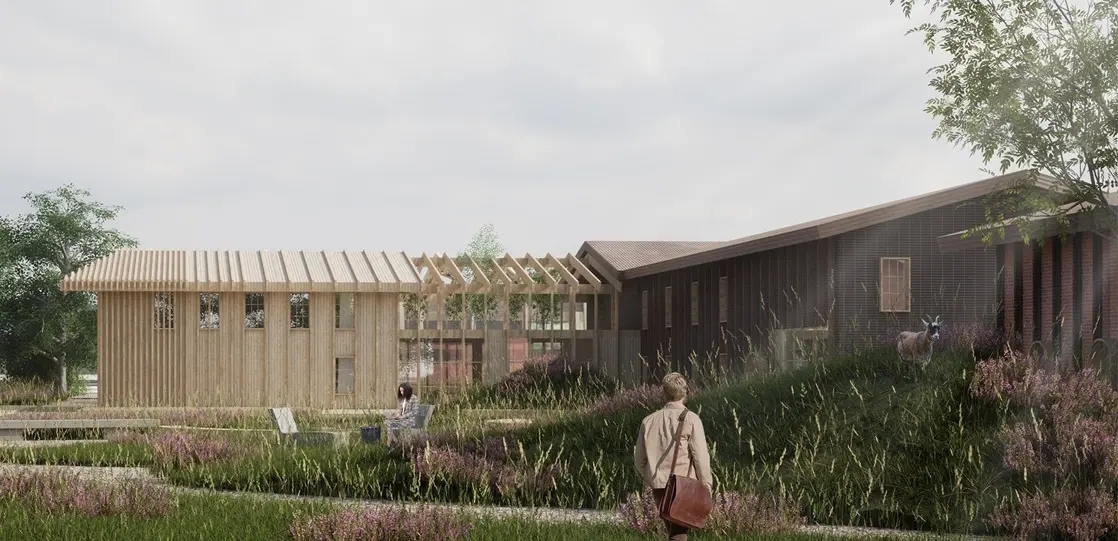
The self-sufficient estate of the future has been divided into three residential zones, which differ in the nature of the development. The first contains flats supplemented with hostel rooms, the next is semi-detached housing and the third is single-family houses. In addition, the estate will have commercial, educational and agricultural service spaces. The latter includes an orchard with vertical farms
At the design stage, we were aware of the many difficulties involved in creating a housing estate of this type. We wanted to provide a wide range of zones for social interaction while maintaining the diversity and individuality of private and semi-private spaces. We wanted our project to promote co-housing, which has been struggling with a stereotypical negative reputation in Poland,” adds Klaudia Ryś
The three best projects were selected by an international jury. For winning first place, students from the Wrocław University of Technology received EUR 1 000. Second place was won by a project prepared by students from South Korea, and third prize went to a team from China
source: Wrocław Universityof Technology
Read also: Estate | Ecology | Curiosities | Wrocław | whiteMAD on Instagram

